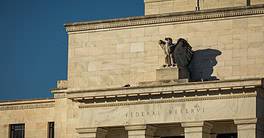PARADIGM SHIFT
By Vanessa Drucker
As part of its Salon series, Global Finance sat down on November 1 with Marc Chandler, global head of currency strategy at Brown Brothers Harriman and author of Making Sense of the Dollar .
 |
|
Chandler, Brown Brothers Harriman: There is a battle under way in Europe for Germany’s soul |
Global Finance: Give us the big picture context for your views on global macro and currency trends.
Marc Chandler: Capitalism is inherently unstable. The Great Moderation [business cycle]—which characterized the last quarter century—is over. Attempting to stabilize the real economy has boosted the volatility of the capital markets, producing further negative feedback on the real economy. Now we are between paradigms, reassembling pieces in an evolutionary process. This new model may take as much as a decade to develop, and it will see governments on a sounder financial footing and involve more regulation of financial capital. It will incorporate new work patterns and involve a demographic shift.
GF: Where does the euro fit into the new model?
MC: The single currency was an economic solution to a political problem—that of convincing Europe, especially France, that East and West Germany should be reunited. Now the eurozone is a monetary union, without a fiscal component, between 17 warring tribes driven by a basic mistrust. But as the military strategist Sun Tzu said, “Keep your friends close and your enemies closer.”
GF: Could any member(s) drop out?
MC: If Greece were to drop out, it is hard to see how they would gain any long term advantage. Tourism remains Greece’s main export. Any gains from currency devaluation would be lost in inflation and a deeper banking crisis.
The battle here is for Germany’s soul: Will it exercise political influence commensurate with its financial power and demand that a solution be found among eurozone members for the current crisis? Germany’s export market depends on other countries living beyond their means, and as [economist John Maynard] Keynes described, debtors and creditors together must share the burden of adjustment.
GF: How will the ECB approach current challenges?
MC: Mario Draghi faces pressure to cut interest rates, because Europe ex-Germany looks to be heading towards recession, which would exacerbate the debt crisis by reducing tax revenues.
GF: Where do you see banks’ risk to European sovereign debt?
MC: European banks were buying peripheral countries’ bonds, while US banks were selling the credit default swap insurance on them. The latest BIS data shows US banks have exposure to peripheral countries, including CDSs, of $767 billion. The CDSs are the hot potato. If a hard restructuring causes them to be invoked, US banks are on the hook.
GF : In currency markets, do you see a trend toward unilateral or coordinated interventions?
MC: The future norm is probably unilateral. Globalization makes coordinated intervention harder, though swap lines seem to function well. The Bank of Japan intervened unilaterally for the first time in three months, sending the dollar to record lows. But the market perceived it as a one-off attempt.
GF: Will the dollar remain the global default reserve currency?
MC: Yes. I am quite positive on the outlook for the US. It has the world’s largest, best-educated workforce; it is one of few developed nations with a positive fertility rate; it has the top universities, high productivity, resilient consumers and unparalleled innovation.



